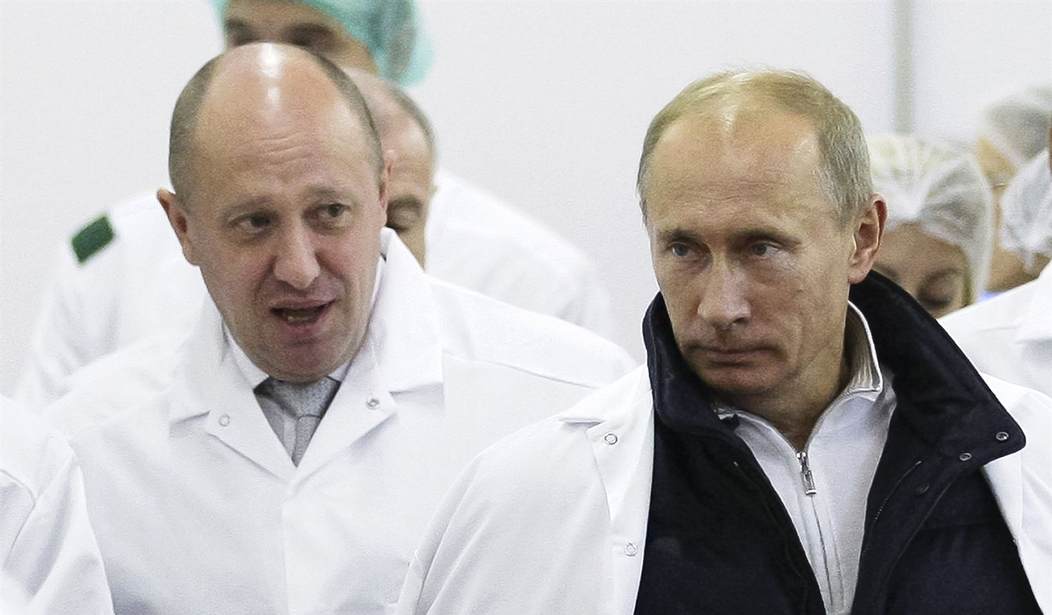On June 27, 2023, the Treasury Department’s Office of Foreign Assets Control (OFAC) announced new sanctions on entities affiliated with the violent Russian private military company, Wagner Group, a unit of paramilitary mercenaries, and its founder and owner, Yevgeny Prigozhin.
One targeted company, Industrial Resources General Trading, is a Dubai-based company sanctioned for importing gold from the Central African Republic and paying the Russian mercenary outfit in cash sent directly to Moscow. It is the first Emirati company sanctioned in relation to Wagner. OFAC previously targeted another United Arab Emirates (UAE) based firm, Kratol Aviation, for providing aircraft to the group. But whereas Kratol’s owners were Russian nationals, Industrial Resources is owned and operated by a family of Dubai traders.
The UAE now finds itself embroiled in well-deserved controversy as evidence mounts to implicate the mineral-rich Gulf country in support of Wagner’s operations across the African continent. And the illicit partnership is raising eyebrows in Washington.
In 2020, the Defense Intelligence Agency (DIA) determined that “the United Arab Emirates may provide some financing for the group’s operations.”At that time, US intelligence officials expressed concerns that the UAE had inked what amounted to a “memorandum of understanding” with Wagner that was suspected of including financial assistance, and was bankrolling “at least some of Wagner’s forces.”
Since then, the UAE’s reported support for Wagner Group’s activities has become a more prominent feature of discussions between the US and its Middle East allies.
Recommended
In February, reports emerged that Wagner had “deployed thousands of operatives in African and Middle Eastern countries including Mali, Libya, Sudan, the Central African Republic, and Syria” with an eye toward supporting Russian interests, and against the backdrop of intense global competition on the resource-rich continent.
The origins of the cooperation between the UAE and Wagner Group trace back to a meeting between Russia’s Security Council Secretary, Nikolai Patrushev, and the UAE’s National Security Adviser, Sheikh Tahnoon bin Zayed Al Nahyan. In January 2019, Patrushev visited Abu Dhabi to “hold consultations on security issues” with special emphasis on developments in Libya.
The UAE and Wagner Group deepened their alliance when they participated in efforts to fuel the conflict in Libya through joint military operations. Wagner contractors joined UAE-backed rebel general Khalifa Haftar who was then opposing the United Nations-recognized government in Tripoli. The Russian mercenaries acted as ground forces, while the UAE provided air strike and logistics support by operating drones and fighters. In March 2021, the UN issued a report implicating the UAE in backing the operations of Wagner Group and Haftar’s forces.The 14 month-siege ultimately ended in failure. But the UAE-Wagner tag team was instrumental in efforts by rebel forces to maintain control over eastern Libya.
In the near term, the UAE’s worrisome support for Wagner operations in Sudan’s conflict has emerged. The Russian mercenary group has been supplying the Rapid Support Forces (RSF) paramilitary group, led by Mohamed Hamdan Dagalo, known as Hemedti, in fights against the Sudanese army. Hemedti, whose troops fought in Yemen and Libya, has long benefited from theUAE’s patronage, and counts the state as his closest regional ally. That he met with Sheikh Mohamed bin Zayed Al Nahyan, the current president of the United Arab Emirates, in February 2022 is not lost on those who follow the region's events.
Russian interest in Sudan peaked recently with the Kremlin targeting gold to dodge Western sanctions. Meanwhile, Wagner has been plundering Sudan’s gold, and UAE-backed Hemedti is known to be working with Wagner to export the Sudanese resource to Russia. In fact, the bulk of Africa’s illegally mined gold is smuggled to Dubai where it is laundered and used to support illicit interests and activities.
In recent years, Russia has used Wagner mercenaries to exert influence, sow instability, and advance its interests in Africa. And it has done so with the full Emirati support of the UAE government. Lest one be tempted to believe that the mutiny facing Vladimir Putin will affect the mercenary group’s operations abroad, it won’t. African leaders (like Libya’s Haftar or Sudan’s Hemedti) depend on Wagner, and the Kremlin has already announced that the group’s paramilitary units deployed to the continent will not be withdrawn.
One effective means for the US to respond to Wagner’s malign interference in African affairs is to reassess the relationship with our strategic ally, the United Arab Emirates. Sanctioning Emirati companies that illegally fund the mercenary group is a first and necessary step. But the US must take a much firmer stance against the UAE’s collaboration with Wagner Group.
Failing to hold the federation of seven emirates on the Arabian Peninsula accountable establishes a dangerous precedent for the US’s strategic ties to other Gulf countries and only serves to undermine Africa’s security and stability.

























Join the conversation as a VIP Member